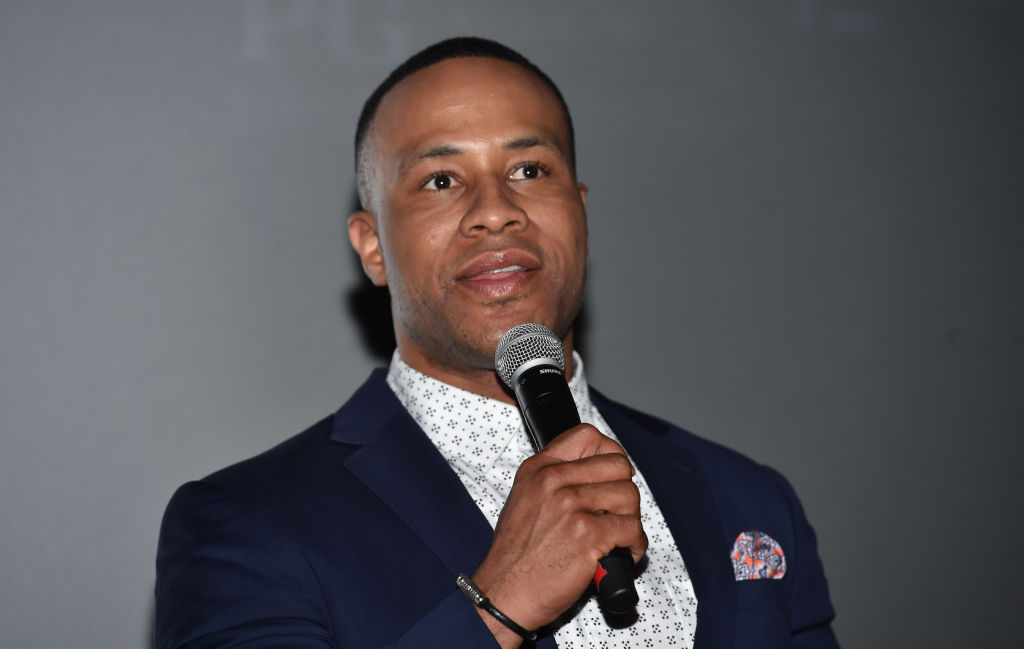DeVon Franklin on crafting new Oscars inclusion guidelines: ‘It was essential’

This week, the Academy of Motion Pictures Arts & Sciences unveiled a new set of inclusion standards for Best Picture Oscar contenders and the announcement has caused quite the stir in Tinseltown.
This week, theGrio caught up with DeVon Franklin, who was instrumental in creating the guidelines that are meant to ensure underrepresented groups have a chance to be recognized in the film industry.
Read More: Academy sets new inclusion requirements for Oscars Best Picture contenders
“It has been a team effort, so to be included as a part of the team is an honor. I have been a governor for a year and I’ve been in Hollywood for 24 years and started as an intern. I came from Oakland and I’ve been Black my whole life,” he explained. “I have always wanted to make it in entertainment so when I got the chance to be a governor, my number one priority was service and change. How can I help this community that I love so much that I feel, you know, completely committed to? Last year, I had led the initiative that was all about diversity and inclusion, know within our membership ranks.”
“As we were talking about our next phase, this discussion started about, you know, creating some new standards around best picture that would increase our representation and inclusion,” he continued. “Ao as a governor being a part of that, it was really just to me, just a very natural evolution of my time in the Academy.”

Franklin explained how he and his team crafted the guidelines that spell out exactly what conditions a production must satisfy in order to be considered for Best Picture that go into effect in 2024.
“There are so many people that have been involved but the goal was, in crafting the standards; one, was to use BFI [London Film Festival] as a template, which we’re very grateful for. We modified them, you know, according to our industry’s needs. We spent a lot of time working with the studios across the industry.”
“We had major guilds across the industry to really get feedback and to really test some assumptions and to make sure that the standards that you ultimately saw were representative of a collective effort, and we believe that they are. Our board has weighed in and we feel like these standards are by no means perfect, but they do represent progress. The progress that is, we believe, long overdue in the business.”
The standards don’t just apply to casting films, but extend throughout all aspects of a production, from the crew to the PR and marketing teams.
“It was essential for a couple of reasons. In terms of affirmative action, our standards are for all underrepresented groups. It’s not just racial and ethnic groups. It applies to women and to the LGBTQ+ community and to disabled community. I want to make sure that it is clearly publicized that these standards are really meant to give all underrepresented groups greater opportunity to be recognized for their achievements. We wanted to make sure that they were flexible. That’s why there are four standards and any production only needs to meet two of the four and there are different ways you could meet them. This is really about intent,” he continued.
Franklin went on to share how everyone he’s worked with across the industry has “the same intent” but “sometimes the intent doesn’t get realized without a way to do it.”

“These standards point the way and they were intentional,” he said. “We gave a lot of thought to all the ways and areas in which underrepresentation is happening in our business. So you look in front of the camera, behind the camera. You’re looking at the crews, you’re looking at internships, apprenticeship programs inside the studios and distribution companies. You’re also looking at marketing and distribution because we feel like these are all the areas in which, no matter how well intended the business may be, underrepresented groups are not being given equal opportunity to be recognized. It was really important to create standards that had some depth and breadth to be able to acknowledge and address all of that.”
Of course, the new inclusion standards have drawn tons of backlash from people who believe they are far too limiting, but Franklin insists the guidelines aren’t as rigid as some may think.
“There are so many ways to meet these standards,” he said. “I think once the fervor of these standards die down and they begin to settle and get into the water of how we do business, people will see that there are so many ways that these standards can be met. I think that the part that will be embraced and that there will be much more creativity and freedom.”
“Now, studios meeting to talk about, well, ‘Who don’t we know? Who’s great that we haven’t hired yet?’ Getting people who are qualified an opportunity to work. It’s only going to make the films that we get from the industry better. When excellence is inclusive of everyone back then that’s when you get real excellence and that’s the intent of these standards.”
Read More: DeVon Franklin signs overall deal with CBS TV studios
When asked why the new standards only apply to Best Picture instead of all of the categories at the Oscars, Franklin suggests this is only the beginning.
“You know, I’ve tried to to take two steps with one foot but it just never works. So we’ve got we have to put one foot in front of the other and the Best Picture nomination speaks for itself. So the thought was we wanted to focus on that,” he said.
“The Academy has been around for over nine decades. When you look at the the origin of the Academy and why it was started, it was with the one goal of advancing the film industry. What better way to advance the film industry and to ensure– not just in the hope but in the practice–that every artist, every person who is working in this business will get an equal opportunity to be recognized for their work? What better way to advance the industry than to have standards that can help, not hinder, every single studio and filmmaker [can] make good on their intent, which is to be inclusive? To not have done it may have been viewed as irresponsible and to now have done it–we hope will be viewed as intentional.”
Have you subscribed to theGrio’s new podcast “Dear Culture”? Download our newest episodes now!
